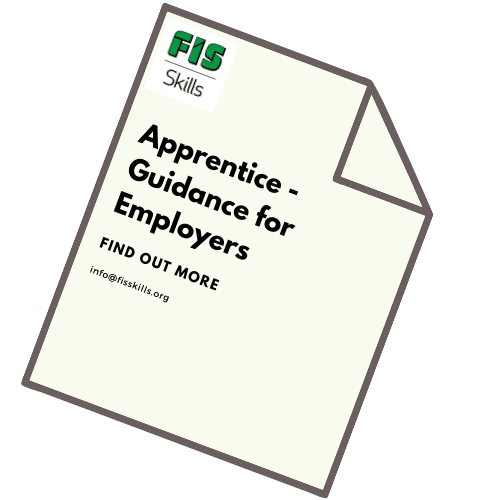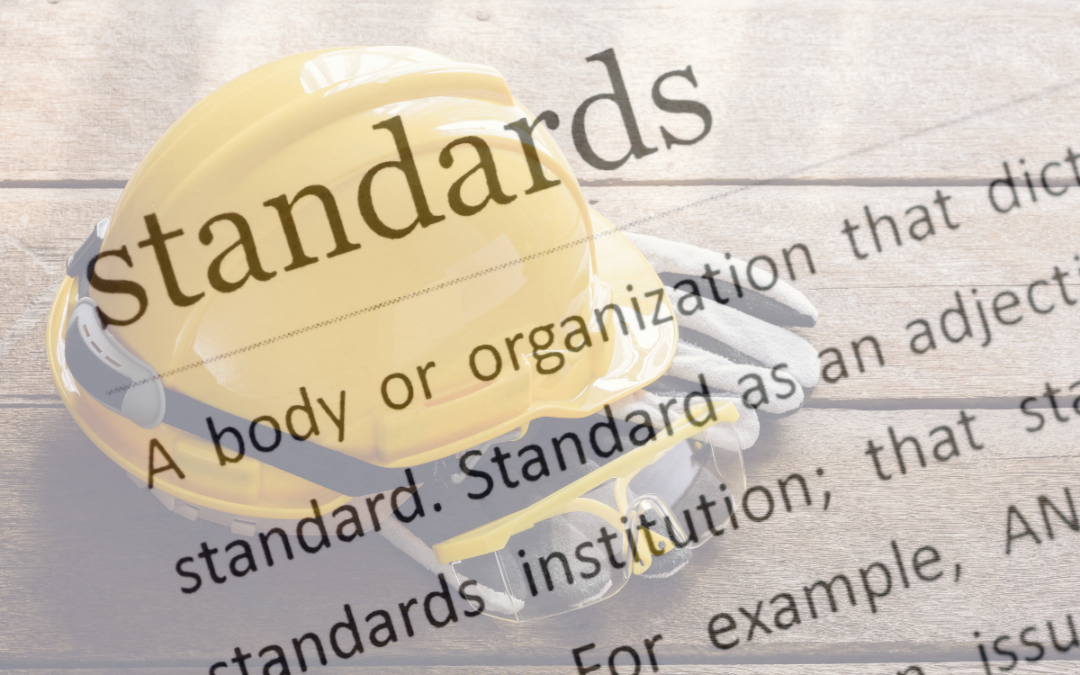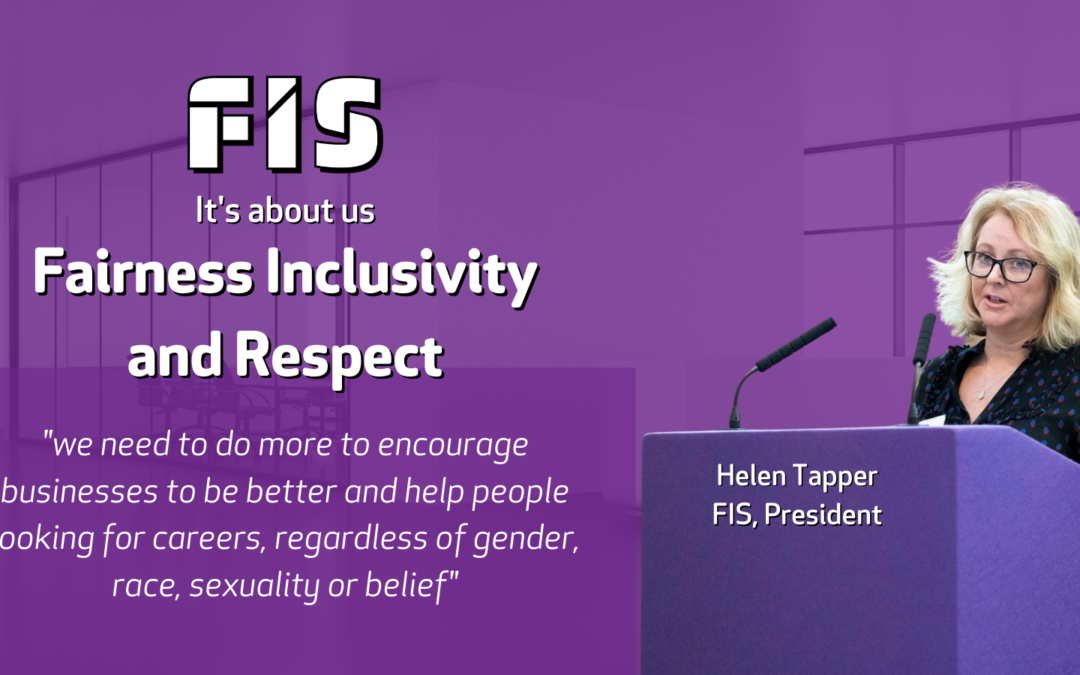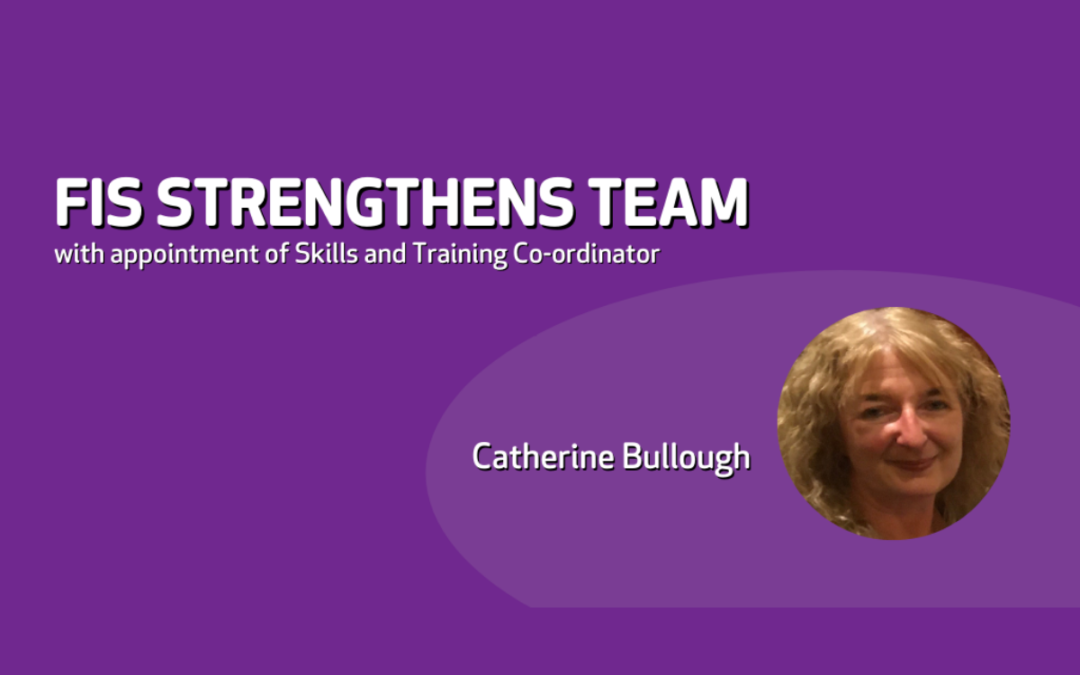
by Clair Mooney | Mar 23, 2021 | Skills
In response to various feedback, CITB has confirmed the introduction of a revised grace period to Site Safety certificates. This will provide support to delegates who are unable to access a Site Safety refresher courses, due to the new lockdown measures.
Individuals now have until 30 April 2021 to join a SSSTS or SMSTS refresher course if their current certificate expires after 1 October 2020. Any delegate whose certificate expired before the 1 October 2020 and does not attend a refresher course before 31 January 2021, will be required to join a full SSSTS or SMSTS course, rather than the refresher equivalent. Find the centres delivering remote refresher training here.
If your organisation is struggling to get places on courses please let us know via info@thefis.org and if the numbers are high enough FIS will request a further extension to these dates on behalf of members.

by Clair Mooney | Mar 22, 2021 | Main News Feed
Updated advice on ventilation and air conditioning during the pandemic
HSE has updated and expanded its advice to help employers provide adequate ventilation in their workplaces during the pandemic. This guidance builds on helping to identify and take action in poorly ventilated areas.It also provides guidance on other factors to consider when assessing the risk from aerosol transmission, and determining whether adequate ventilation is being provided to reduce this risk.
You should be maximising the fresh air in a space and this can be done by:
- natural ventilation
which relies on passive air flow through windows, doors and air vents that can be fully or partially opened
- mechanical ventilation
using fans and ducts to bring in fresh air from outside, or
- a combination of natural and mechanical ventilation, for example where mechanical ventilation relies on natural ventilation to maximise fresh air
Read the updated guidance and find out how you can provide adequate ventilation in your workplace, helping to protect workers and other people from transmission of coronavirus.
Updated advice on talking with your workers about preventing coronavirus
The law says you must consult with your workers about reducing risks from coronavirus in your workplace. HSE has updated its guidance to help you have conversations with your workforce about providing support and keeping control measures in place.
Talking to your workers means you can explain changes you’re making to keep the workplace COVID-secure and continue to run your business safely. It also gives workers the chance to:
- tell you if they’re worried about any workplace risks
- influence decisions about health and safety
HSE has converted this advice to web pages so it is easier for people to find the information they need and we have expanded the guidance to include more advice on:
- supporting higher-risk groups
- returning to the workplace
- ventilation and air conditioning
- stress, mental health and wellbeing
The updated guidance will help you keep in touch with workers and support them as restrictions are eased in the coming months.

by Clair Mooney | Mar 19, 2021 | Membership
FIS has launched a new video to help support understanding of the process and values behind the Acoustic Verification Scheme.
This verification scheme was established in 2019 to introduce standard methodology and support honest and consistent declaration of acoustic performance, encouraging best practice and preventing inaccurate or misleading information from undermining the market and responsible manufacturers.
The video explains simply how products are tested and how the verification process helps specifiers and contractors to specify and select products safe in the knowledge that they will meet the expected performance.
The FIS Acoustic Verification Scheme currently covers partitions and operable walls. FIS Member Linear Group uses the scheme to support their work.
Stephen Holmes CEO, Linear Group states: “We have now adopted the FIS Acoustic Verification Scheme on all relevant specifications for Linear Group. The scheme helps us to short-cut a complex verification process, safe in the knowledge that the test evidence we are confronted with has been interrogated and is both accurate in itself and we can be confident that the product we are installing will perform as designed.
Acoustics is a complex space and information can be misleading – this scheme gives us the reassurance we need as a contractor and we can pass this reassurance on to the customer.”
FIS CEO, Iain McIlwee added:
“The launch of the scheme has been really encouraging for two reasons, firstly as it is helping to make a difference in terms of winning back trust and supporting acoustic specification, but also because it is the embodiment of FIS values. The scheme is about the industry deciding that there is a better way and doing something about it to regain and build trust, it is our community in action and I am proud to be part of it – FIS draws no income from running the scheme, it is, like FIS not for profit, but all about values and value. We are encouraging all members who have products in scope to get their products verified and those installing and specifying to ensure that are checking products are verified.”
Currently the FIS Acoustic Verification covers Operable Walls and Partitions, but a working group is being formed to look at Pod products. The verification work is done in batches and FIS is intending to put the next verification batch through before the end of April. If you would like more information on the process email iainmcilwee@theife.org.
To watch the video and find out more about the scheme you can visit the FIS Acoustic Verification Hub here

by Clair Mooney | Mar 19, 2021 | Main News Feed
HSE inspection indicate how industry has stepped up
BuildUK reported to the House of Commons Work and Pensions Committee this week, within the report was the update that the HSE which has visited 4,300 construction sites, with 10% being sent written correspondence and just 2% being served with an Improvement Notice.
As lockdown starts to ease over the coming weeks it is vital now that industry continues to monitor and manage sites effectively.
You can visit the FIS COVID-19 H&S Toolbox for all up to date information here.
An update on lockdown easing across the UK
The Scottish Government has confirmed that the current ‘Stay at Home’ order will be updated to ‘Stay Local’ from Friday 2 April and this will be in place for at least three weeks. From Monday 5 April, additional students (including those on engineering and construction courses) will be allowed to resume face‐to‐face learning at colleges, and those at greatest risk of not completing their courses will be prioritised. From Monday 26 April, all restrictions on travel within Scotland will be lifted and non‐essential work will be permitted to resume inside other people’s homes.
In England, the ‘Stay at Home’ order will be updated to ‘Stay Local’ from Monday 29 March with outdoor gatherings of either six people or two households permitted. Wales has already moved to ‘Stay Local’ restrictions and these will be lifted from Saturday 27 March. In Northern Ireland, the ‘Stay at Home’ provision will be removed from legislation on Monday 12 April.
Latest lockdown rules in Scotland
Latest Lockdown rules in England
Latest Lockdown rules in Wales
Latest Lockdown rules in Northern Ireland
Vital updates on workplace testing
You will hopefully have seen the news that all businesses can now apply to and benefit from free workplace testing (so long as you apply to join the scheme before 31st March).
One area that has reared its head in recent discussions is the need to review policy for individuals who have had the illness. Anyone who has previously received a positive COVID-19 PCR test result should not be re-tested within 90 days of that test, that is unless they develop any new symptoms of COVID-19. It is important to consider how this is managed, but there is a danger of false positives.
Finally on testing, questions have arisen around whether site admission can be refused if an individual refuses to test. Here we should look to the Health and Safety at Work Act, whilst you can’t force someone to test, your consideration is whether you are acting to protect your workforce and in so doing need to refuse admission to site.
More on testing here

by Clair Mooney | Mar 18, 2021 | Skills
The cap on apprenticeship starts for small employers will be reset to zero from April 2021. It means that any non-levy paying business can start up to 10 new apprentices from 1 April 2021 regardless of the number they currently employ. The cap will be kept under review during the next financial year.
Non-levy-paying businesses have been capped on the number of apprentices they can put through the digital apprenticeship service since January 2020 – starting with a limit of three before increasing to 10 in July – to ensure the overall apprenticeships budget is not overspent. The digital service was launched in April 2017 but was only for levy-paying employers to manage and spend their apprenticeship funding. Small employers will fully transition onto the service next month, meaning that all apprenticeship starts must now go through the system rather than procured non-levy contracts held by training providers.
Announcing the cap reset, the Education and Skills Funding Agency (ESFA) head of apprenticeship operations Jason Poole said: “The cap is there to help with the overall spend controls that we need to have in place for the whole apprenticeship programme. As we’ve moved away from individual provider contracts, we still need a way to be able to monitor and manage the flow of funding. As we are now moving from the beginning of next month to have all new starts on the service, I am really pleased to confirm that from 1 April, we will be resetting that total. There are quite a lot of employers now who have started to use those reservations and an increasing number that have got up to their limit of 10.”
Apprentice “reservations” made by small employers before April which convert to starts beyond next month will not count in the new 10 pot. As Poole pointed out, the cap was first imposed owing to concern that the amount of money not being spent by levy payers wouldn’t be enough if the government allowed small employers to have as many starts as they wanted. But, in the past year starts have dropped dramatically across England because of the pandemic and the overall apprenticeships budget is expected to be underspent this year.
ESFA also announced that the reservation period for employers who do not pay the apprenticeship levy is being extended from three to six months from 1 April 2021. This means that these employers will be able to reserve funds up to six months before an apprenticeship is planned to start.
Have a look at the FIS Apprentice – Guidance for Employers for details of support available for taking on an apprentice. If you would like any further information, don’t hesitate to contact us on 0121 707 0077 or email info@thefis.org

by Clair Mooney | Mar 18, 2021 | Skills
Hiring an apprentice is a productive and effective way to grow talent and develop a motivated, skilled and qualified workforce. Incentive payments are available to employers, but differ across each home nation.
Wales
The Employer Incentive Scheme in Wales will now run until 30 September 2021. Businesses can claim up to £4,000 (increased from £3,000) for each new apprentice they hire under the age of 25 (for at least 30 hours per week) and to £2,000 for under 30 hours. For workers aged 25 and over, businesses can access £2,000 for each new apprentice they hire on a 30 hour+ and a £1,000 incentive for apprentices working less than 30 hours. Payments are restricted to 10 learners per business and dedicated funding is also available to recruit disabled people and for workers who lost a previous apprenticeship position because of COVID-19.
Scotland
The grant will provide:
- £5,000 for employers taking on or upskilling a 16 to 24-year old apprentice, and for those aged up to 29 years who are disabled, care leavers and minority ethnic
- £3,500 for employers taking on or upskilling an apprentice aged 25 plus
England and Northern Ireland
Employers will receive £3,000 for new employees of any age who start their apprenticeship from 1 April 2021 to 30 September 2021. The incentive payment is in addition to the £1,000 employers already receive for hiring an apprentice, aged 16 to 18 years old or under 25 with an education, health and care plan or who has been in the care of their local authority.
Visit the Skills Hub for more information on taking on an apprentice and qualifying your workforce.

by Clair Mooney | Mar 17, 2021 | Main News Feed
Employers with fewer than 250 employees can continue to use the Coronavirus Statutory Sick Pay Rebate Scheme to claim back coronavirus‐related SSP, including for employees who have been advised by letter to shield because they are clinically extremely vulnerable. Claims should be submitted via the online service, and you can make more than one claim per employee, but you cannot claim for more than two weeks in total. There is currently no indication of when the scheme will end.

by Clair Mooney | Mar 16, 2021 | Membership
In this webinar, tax expert Liz Bridge discussed the issues and challenges associated with the implementation of the Domestic Reverse Charge VAT, which came into effect on 1 March 2021.
It looked at how to manage Reverse Charge VAT in your business and there was conversation on the challenges businesses are experiencing.
A reminder that FIS has a Reverse Charge VAT Toolkit here, which includes previously recorded webinars. If you have any questions, please don’t hesitate to play them in.

by Clair Mooney | Mar 15, 2021 | Market data
Build UK is working with the Chartered Institute of Procurement & Supply (CIPS) to monitor the availability of construction materials post‐Brexit. Most manufacturers have reported that the mitigation strategies they put in place have avoided significant delays or shortages, and they will continue to hold extra stock for the forthcoming quarter to ensure continuity of supply. No material is RAG‐rated ‘red’ and the majority of ‘amber’ items are M&E products, including building management systems, data hub equipment, external luminaires, street lighting, lighting control, pumps, press units and booster sets, which are experiencing delays of up to two weeks although this is expected to be a short‐term problem only.
Other materials rated ‘amber’ are Steel and Timber, which have experienced significant price increases due to supply and demand issues. There has been increased demand from China as it recovers from the impact of coronavirus, as well as challenges with new customs requirements and a lack of transport availability. A risk to manage over the next few months is the increased cost of raw materials, particularly Aluminium, Copper and Methyl Methacrylate (MMA), which are all thought to be coronavirus, rather than Brexit, supply and demand issues.

by Clair Mooney | Mar 12, 2021 | Skills
Following discussions with FIS Working Groups a request to change qualifications was submitted to the Standard Setting Body (SSB) for Construction. In order to meet regulatory requirements the SSB must show they have consulted on these proposed changes as widely as possible across all four home nations. All of the changes proposed by FIS Working Groups are in a bid to keep people safe and are:
- Change the National Occupational Standards, Recommended Qualification Structure for Interior Systems level 2 by the addition of COSVR355 v3 Erect fire resisting walls and wall linings. This will provide a fire protection qualification outcome for dryliners.
- Add a new National Occupational Standard for service, maintain and repair of operable partition wall systems, as an option. It has been reported there have been accidents and near misses during these operations, the inclusion of this standard will provide a qualification route for individuals employed in this area. For a copy of the proposed draft standard please contact George Swann on 07553 874838 or email georgeswann@thefis.org
- In response to the Grenfell inquiry and the work on competence, insert under ‘methods of work’ as a requirement of knowledge ‘how fire spreads through a building, how to impede it and protect people and the structure’ to COSVR125, 126, 127, 129, 130, 133, 618, 620, 769, 770 all contained I the Recommended Qualification Structure Interior Systems level 2. By doing this the statement will cascade into all qualification outcomes (academic, trained and competence) derived from these standards thereby giving operatives the required knowledge.
If you agree with these changes please copy and paste the following message and email it to Standards.qualifications@citb.co.uk with the subject header of Interior Systems NOS Changes:
Hello
This message is to show support for the changes requested via FIS Working Groups.
[Insert your normal signature block]
If you disagree with these changes please explain the reason for your disagreement by email using the address above.
If you have any concerns or need additional information or to discuss the above, please don’t hesitate to contact George Swann on 07553 874838 or email georgeswann@thefis.org

by Clair Mooney | Mar 11, 2021 | CSCS, Skills
Following the introduction of T Levels and a request from the Department for Education (DfE) for employers to recognise formal work experience, the Construction Leadership Council (CLC) has asked CSCS to carry out a consultation exercise on how students on industry placements should be consistently recognised by card schemes carrying the CSCS logo. FIS encourage members to complete this survey which may lead to the introduction of a new easily identifiable card based on either the existing Trainee or Work Experience cards already used by a number of card schemes.

by Clair Mooney | Mar 11, 2021 | Skills
Providing the correct levels of supervision in the Construction and Built Environment (CBE) are critical to ensure that the correct levels of Health and Safety (H&S) are maintained, projects and programmes are delivered on time, to quality and cost overruns are avoided. The Occupational Work Supervision (OWS) qualification, the first rung on the Supervisory and Management ladder, enables employees, with a background in construction and its allied trades and professions to demonstrate their initial competence in the area of supervision.
When the qualification was first introduced there was a need for the OWS employee to have a single focus on the area that they were deemed competent to supervise and a series of endorsements were introduced to demonstrate just that. In consultation with industry and current working practises this need has changed over the years, therefore OWS employees are now required, in some instances, to supervise multi trades. Due to this, the National Working Group (NWG) for OWS has been in consultation with CITB and a proposal to remove the requirement for any endorsements to be listed within the qualification is being planned. This decision means that:
- Employers are responsible for ensuring that somebody holding an OWS qualification is deemed, by the employer, to be competent to supervise the area(s) that they are asking the person to oversee.
- Employers will better be able to plan career progression for their staff.
- It will allow employers to better utilise their workforce across different areas of the business.
- Awarding Bodies will no longer be required to endorse an OWS qualification by the issuance of an endorsement or side letter to the award.
- Card schemes may no longer have a requirement to show endorsements on cards which should reduce the processes required to obtain a card.
There will be no changes to the entry requirements of the qualification, enforced by Awarding Bodies in that any candidate who registers will need to evidence some form of competence within CBE or its allied trades and professions, which can be demonstrated in several different ways.
In order to collate any further views from industry, CITB would welcome feedback by completing the ‘have your say’ form by clicking here. The comments for this will close on 31st March 2021.
When this is implemented employers will be responsible for ensuring occupational work supervisors, gangers, team leader and/or forepersons hold the required qualifications and have a verifiable background in the occupation or occupations they are supervising. Don’t get caught it’s easy to make the necessary checks on CSCS cards using GoSmart: https://www.cscs.uk.com/applying-for-cards/checkcards/

by Clair Mooney | Mar 11, 2021 | Skills
Several industries where project-based employment is the norm have struggled more than most to comply with the 12-month minimum apprenticeships rule, but their fortunes could be about to change. Chancellor of the Exchequer Rishi Sunak announced in last week’s Budget a £7 million fund to run so-called “portable” or “flexi-job” apprenticeships in sectors such as creative and construction.
This “new approach” will involve organisations applying for money to start new agencies which employ apprentices and place them with multiple employers. It is targeted at those industries that cannot offer a long-enough placement with a single employer for apprentices to meet the government’s minimum 12-month duration requirement. In the TV and film sector, for example, most roles are freelance and usually only run for two to three months.
The flexi-job model was lauded by prime minister Boris Johnson during a speech on adult skills last year, after a meeting between ministers and his influential skills advisor Professor Alison Wolf decided the government should press ahead with its introduction. It also featured briefly in this year’s Further Education white paper.
The scheme will become the third agency-type model for apprenticeships, following Apprenticeship Training Agencies (ATAs) and Group Training Associations (GTAs), which have been established for many years but have arguably become neglected by policymakers. The Department for Education, which is responsible for the scheme, has promised a consultation on the proposals.
Levy problems ‘particularly stark’ for construction sectors supported by LOSC
Flexi-job apprenticeships are being specifically targeted at industries and sectors where work is often patchy. Workers in the finishes and interiors sector, for example, who are finishing off one high-end contract will often wait weeks before starting on the next contract.
FIS has discussed and draw attention to the problems the sector faces in labour shortages and these are “not unique, but it is particularly stark”. About 40 per cent of finishes and interior sector workers are LOSC, and it is only “if you’re lucky that your jobs will join up, whereas when you’re an apprentice, you have to have a minimum 18 month contract with one employer. So, you can’t move around.
This issue has led to reports of a serious underspend of the apprenticeship levy. With the restrictions on training during 2020 it is unlikely employers in the finishes and interiors sector have seen a return on the apprenticeship levy they have paid.
CITB runs its own Shared Apprenticeship Scheme which has supported 300 apprentices so far. CITB have stated to their credit, the government has recognised the problem and is acting to help the construction industry utilise apprenticeships more easily.
The Skills for Jobs white paper, published in January 2021, acknowledged that creative and construction face “barriers in making full use of apprenticeships,” due to their “varied and flexible employment patterns”.
It added that “sectoral apprenticeship agencies may offer one solution, giving constant employment to an individual during the life of their apprenticeship which allows them to move between work placements and continue their training”.

by Clair Mooney | Mar 9, 2021 | Insurance, Main News Feed
Tax expert Paul Mason from Markel talked through the changes, how to ensure your business is compliant and vitally how you should be communicating with any contractors working through your business, whether they be trade based labour only subcontractors, surveyors, engineers or IT contractors.
The off-payroll working rules (IR35) apply to any worker/contractor that contracts through their own limited (personal services) company. The rules are designed to ensure that workers, who HMRC assert should be classed an employee, pay broadly the same tax and National Insurance contributions as employees.
From 6 April 2021, responsibility to identify the status of the worker and ensure tax is paid is shifting to the company engaging the contractor. This applies to medium or large-sized private businesses, essentially all companies who meet two of the following three criteria:
• turnover is greater than £10.2m a year;
• balance sheet assets are greater than £5.1m
• have more than 50 employees

by Clair Mooney | Mar 9, 2021 | Main News Feed
To mark Women in Construction Week and International Women’s Day 2021, FIS has launched a new Fairness, Inclusivity and Respect (FIR) Toolkit – to support members in their focus on fairness, inclusivity and respect in their workforce.
The FIS FIR Toolkit draws together a wide variety of tools and training available from across the construction sector making it easier for members to encourage equality, diversity and inclusion in their workforce. It identifies where legal responsibilities lie, but also helps to highlight and support companies in managing the pre-qualification process and ensuring that FIR processes can be core to their business.
Commenting on the launch of the toolkit, FIS CEO Iain McIlwee said: “The Toolkit is part of a renewed effort within FIS to support individual businesses, to highlight and celebrate diversity within the workforce and to ensure that the FIS network works for all individuals. It also guarantees that through better support and communication, we strive to ensure that the FIS community is open and supportive of all. The focus mirrors FIS core communication and recruitment campaign: ‘It’s about you’ using the strapline, ‘It’s about us’.”
FIS President and Operations Director at Tapper Interiors, Helen Tapper stated: “In my 37 years in the industry I have at times felt like a woman in a man’s world – that is no longer acceptable. Things have improved over the years, but we cannot kid ourselves that we are anywhere near where we need to be – old habits die hard and hold us back. With immigration policies likely to lead to short term labour issues, it has never been more important to renew our efforts – we are missing out on huge swathes of potential.”
“As FIS President, I committed to ensuring that we stepped up efforts in this area – we had the Women in Fit-out initiative, but we need to do more to encourage businesses to be better and help people looking for careers recognise that they have a home and opportunity in our sector regardless of gender, race, sexuality or belief. Central to the ‘It’s about us’ focus is this new toolkit which signposts tools and celebrates diversity within the FIS community. I know in our community there are positive role models and great stories that will inspire others, but we need to do more to tell them. Therefore I am reaching out to people in our community, particularly those in the early stages of their career who sometimes feel on the edge or in the minority to tell their story, to help us understand their struggles and to learn how we can better support them and use their stories to inspire others. Women in Construction Week is the ideal time to launch this work and draw on the theme of International Women’s day that we “Choose to Challenge” and start to encourage new habits.”
To access click FIS Inclusivity Toolkit – FIS (thefis.org)

by Clair Mooney | Mar 9, 2021 | Main News Feed
The Construction Leadership Council is calling on businesses from across the industry to play their part in securing net zero carbon construction 2050. In this year of the UK hosting COP 26, it is imperative that the construction sector steps up to the challenge and supports the Race to Zero.
Today the CLC announces CO2nstruct Zero, a cross-industry change programme to drive carbon out of all parts of the construction sector, from manufacturing and design to construction and operation of assets.
It is intended to promote the high-level priorities that the industry must work on to reduce carbon, thereby playing our part in achieving the UK Government’s objective of net zero for the whole economy by 2050.
CO2nstruct Zero builds upon the way that the industry united last year as a single force to tackle Covid-19, ensuring a consistent approach is taken by the whole sector while avoiding duplication of work.
CO2nstruct Zero’s priorities are:
Transport
➢ Accelerating the shift of the construction workforce to zero emission vehicles and onsite plant
➢ Maximising use of Modern Methods of Construction and improved onsite logistics, reducing waste and transport to sites
➢ Championing developments and infrastructure investments that both enable connectivity with low carbon modes of transport and design to incorporate readiness for zero emission vehicles
Buildings
➢ Work with Government to deliver retrofitting to improve energy efficiency of the existing housing stock
➢ Scale up industry capability to deliver low carbon heat solutions in buildings, supporting heat pump deployment, trials of hydrogen heating systems and heat networks
➢ Enhancing the energy performance of new and existing buildings through higher operational energy efficiency standards and better building energy performance monitoring
Construction Activity
➢ Implementing carbon measurement, to support our construction projects in making quantifiable decisions to remove carbon
➢ Become world leaders in designing out carbon, developing the capability of our designers and construction professionals to develop designs in line with circular economy – reducing embedded and operational carbon, shifting commercial models to incentivise and reward measurable carbon reductions.
➢ Support development of innovative low carbon materials (prioritising concrete and steel), as well as advancing low carbon solutions for manufacturing production processes and distribution
The CLC is now inviting companies and organisations from across the industry to link up with CO2nstruct Zero, getting involved with its delivery. The CO2nstruct Zero is not to develop new solutions or new pathways – there are many groups in the industry well placed to do this, but we believe that the CLC does have a critical role to play in bringing people together to consolidate collective actions and plans for the sector.
An action plan is being prepared, aligned to the 9 priorities, co-ordinating the extensive and exciting work already happening right across the industry, including within the CLC through the Green Construction Board and the Infrastructure Client Group, to develop the solutions, guiding companies on the actions and role that they can play. Organisations can volunteer to help with the development of the action plan by bringing their initiatives to join up, while individual businesses are encouraged to become Business Champions sharing their approach to delivering on the 9 priorities and contributing to the Race for Zero.
The action plan will also consider changing skills needs and how these can be addressed to provide a workforce that can achieve net zero.
Construction Leadership Council chair Andy Mitchell CBE said: “There is no bigger challenge that our industry faces than the need to decarbonise. We need to pull the whole industry together, letting everyone know what they can do to reduce carbon, while unlocking strategic changes that will set the sector on a new course towards net zero”.
Construction Minister Rt Hon Anne-Marie Trevelyan said: “The UK was the first major economy to set our commitment to eliminate our country’s contribution to climate change into law. But we can only do that by working with industry to make practical changes to secure a better low-carbon future.
“I am delighted that, through CO2nstruct Zero, the construction sector is showing the unity and leadership to make this happen and ensure we build back greener.”
The Construction Leadership Council will be identifying measurable targets to show how the industry is making progress towards Net Zero. CO2nstruct Zero will act as the focal point of engagement for the industry with Government in preparation for November’s COP26 climate change conference in Glasgow.

by Clair Mooney | Mar 8, 2021 | Membership, Skills
FIS has recently appointed Catherine Bullough to project manage the BuildBack and Kickstart Programmes. Catherine has over 17 years’ experience of working with the construction industry, having previously worked with CITB in both an operational and strategic capacity. Catherine was the Partnerships Manager with the Industry Relations Team, working with construction employers and stakeholders to ensure that the construction industry had the supply of skills that it needed across the South and South West of England
Originally hailing from “the Lang Toun” of Kirkcaldy, Fife, and gaining a mining technology qualification, Catherine headed south to study at Manchester Poly originally embarking upon a career with the Police and Trading Standards before moving into the field of learning and development.
Catherine will be working as part of the Skills & Training team at FIS; with a keen focus upon helping the sector recruit and retain new talent; enabling on-site solutions to help finishes and interior employers recruit and train; creating new opportunities through extended partnership working and identifying funding opportunities to support the sector.
Catherine is an APM qualified Project Manager and remains a keen Raith Rovers supporter!
Skills and Training Lead George Swann said; “We welcome Catherine and value the wealth of knowledge and experience she brings to the FIS team. In the short time Catherine has been here she has played a leading role in the implementation of the FIS KickStart programme and we should be seeing individuals placed with employers in the next few weeks. Catherine is preparing for the first cohort of FIS BuildBack candidates and we look forward to reporting success in placing these candidates with employers”.

by Clair Mooney | Mar 5, 2021 | Skills
Monday saw the opening of the consultation into CITB Levy proposals, in which they’re suggesting a return to pre-Covid rates in the way they raise the Levy for the next three years. CITB is asking for feedback on its plans to help get construction back on its feet and play a leading role in the country’s economic recovery.
Following their decision to apply a 50% Levy rate for this year, CITB is now proposing returning to 2019 levels from 2022. CITB will support smaller employers even further this year by increasing the threshold, making an extra 5,000 exempt from paying the Levy. Employers in scope to CITB are eligible for grant even if they do not pay the Levy. You can get full details on the CITB proposals by clicking here.
CITB Levy registered employers can take part in the consultation, which runs until Sunday 11 April, by clicking here. You can also register for one of their virtual events explaining the CITB proposals here. Consensus will take place from Monday 14 June to Sunday 15 August, with more information available here.

by Clair Mooney | Mar 4, 2021 | Drylining, Main News Feed
Steve Halcrow of Chelwick Ltd used his vast experience of inspecting drylining installations to highlight the 5 most common problems he encounters on site. He looked at what may have caused them and vitally, what can be done to avoid them in the future.
A member of the FIS and dedicated to quality in the sector, Steve spoke on the FIS PPP (Product, Process People) Quality Management Framework and tools to support a get it right first time approach to drylining installation.
Steve has developed a range of new E-learning courses to support development of competence through the supply chain. This training is now on offer to FIS members for £55 (standard rate £95 per candidate) and full details are available at https://www.stepsdigital.co.uk

by Clair Mooney | Mar 4, 2021 | Skills
The Budget and Skills
Cash incentives for employers to hire new apprentices doubled
Apprenticeship financial incentives were first introduced by Sunak in August 2020 and currently offer firms £2,000 to take on apprentices aged 16 to 24, while those that employ new apprentices aged 25 and over are paid £1,500.
The chancellor said in the Budget on Wednesday that the bonuses, set to end on 31 March 2021 will be extended for a further six months to September. And any employers who hire a new apprentice between 1 April 2021 and 30 September 2021 will receive £3,000 per new hire, regardless of the apprentice’s age. This is on top of the £1,000 payment already provided for new apprentices aged 16 to 18 and those under 25 with an Education, Health and Care Plan, meaning that some employers could receive £4,000 in total.
FIS is aware the take-up of this incentive payment has been minimal to date. Approximately 15,000 employers have applied across all industries, and we know apprentice numbers are down around 30% on previous years. With training for the Interior Systems Installer apprenticeship now being offered by 11 registered Apprenticeship Training Providers and a further five organisations awaiting approval, provision is steadily increasing. This apprenticeship has options for Dry Lining and Ceiling and Partitions. If you are considering taking on an apprentice take a look at the FIS Apprentice – Guidance for Employers.
There is other financial support available for employers who employ apprentices and according to employers who do, the positive benefits outweigh the negatives. Have a listen to the FIS webinar on Building an Apprentice Workforce to hear what employer using different approaches think.
FIS will be happy to answer questions and/or provide further information, advice and guidance, give us a call on 0121 707 0077 or email info@thefis.org.
£126m for traineeships
Sunak said the government will provide an additional £126 million in England for “high quality” work placements and training for 16 to 24-year-olds in the 2021 and 2022 academic year. This is hoped to attract a further 40,000 traineeship starts next year. Employers who provide trainees with work experience will continue to be funded at a rate of £1,000 per trainee. Employers can have up to 10 Traineeship placements at a time. It builds on the £111 million the chancellor set aside in 2020 and 2021 to triple the number of traineeships.
‘Portable’ apprenticeships set to be launched
The government will introduce a £7 million fund from July 2021 to “help employers in England set up and expand portable apprenticeships”. The budget document says this will enable people who need to work across multiple projects with different employers, such as in the TV and film industries, to “benefit from the high quality long-term training that an apprenticeship provides”. The program will also suit occupations in construction.
Employers will be “invited to bring forward proposals here, and in particular the Creative Industries Council will be asked to do so in recognition of the potential benefits of this new approach for the creative sector”. The Treasury called this scheme “flexi-job” apprenticeships. The first of these are expected to start in January 2022.
‘Help to Grow’ scheme for Small and Medium Enterprises to upskill
The budget document says the government will offer a new UK-wide management programme to upskill 30,000 small and medium-sized enterprises over three years. It states: “Developed in partnership with industry, the programme will combine a national curriculum delivered through business schools with practical case studies and mentoring from experienced business professionals. “Over 12 weeks, and 90 per cent subsidised by government, this programme will equip SMEs with the tools to grow their businesses and thrive.” The budget’s costing document shows the government has set aside £60 million for this scheme in 2021 and 2022 and then £75 million for 2022 and 2023. It is unclear at this stage what government department will be responsible for this scheme.




















